Islanders voice concerns about the Ocracoke ponies
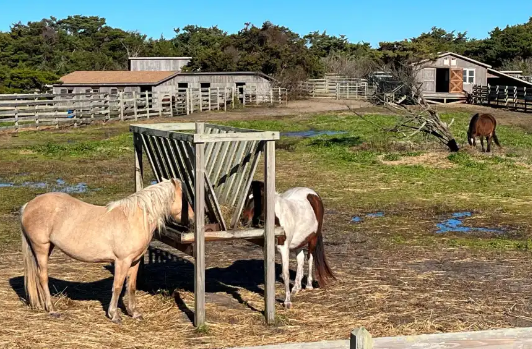
By the Ocracoke Observer
A meeting with the Ocracoke Community on the future of the Ocracoke pony herd showed that islanders care about the herd and would like to see it maintained.
The Cape Hatteras National Seashore staffers are studying the situation and gave a preliminary report at a meeting Nov. 29 in the Community Center to an audience of about 30.
The National Park Service has cared for the ponies since 1959 when after NC. 12 was paved, the horses needed to be corralled to stay safe.
That has been good for the herd but is a quandary for the park service.
The national parks were established to save native species, and horses are not native, said Elaine Leslie, a retired wildlife biologist with the park service.
Prior to her talk, Dr. Kent Redford, a retired ecologist, explained that historic data shows that horses actually evolved on the North American continent.
They then migrated to Asia and Europe, but they went extinct on the North American continent 8,000 to 10,000 years ago.
Europeans, who had been domesticating horses, reintroduced them to the Americas in 1493.
The ongoing myth is that they swam ashore from Spanish galleon wrecks, but Redford said there is no there’s no definitive evidence of where they came from.
Genetically, the wild horses along the East Coast are a hodge podge, and they are interlopers.
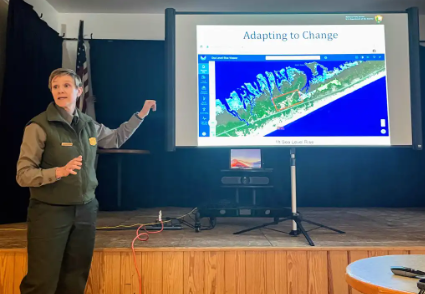
“There’s no agency that says horses are native,” Leslie said. “They’re considered exotic of feral.”
Ocracoke’s herd of 11 is unique among those on the Outer Banks in that they are well fed and cared for, she said.
Dr. Susan Sutska, a wildlife biologist at the Cape Lookout National Seashore, explained that the Shackleford Banks ponies in that park roam wild.
She just monitors them but notes that she is concerned about sea level rise and whether the herd will be able to survive that and saltwater intrusion into the ground water.
While the government does not take care of these horses, they are sanctioned by special legislation allowing them to be there, unlike the Ocracoke horses. Also, The Foundation for Shackleford Horses Inc., a nonprofit entity, is a partner agency tasked to preserve and protect the herd.
Leslie explained that sea level rise is a growing concern for the Ocracoke herd since a large part of the north end of the 15-acre pen is under water.
“Their area is shrinking,” she said.
There is some higher land in the penned area, said Meaghan Johnson, chief of resource management and science, and they are going to start prepping it in January so that the horses have access to it.
She said the water is rising 5.32 millimeters (.21 inches) per year and is projected to rise 1.75 feet over the next 100 years.
“A foot of sea level rise is scary for a place that’s only one to two feet above sea level,” Johnson said. “By 2100, a solid meter (3.3 feet) of rise and saltwater intrusion is a concern.”
Leslie pointed out a project by the Ute Indians near Mesa Verde National Park in Colorado where the wild horses are being adopted.
Is that something Ocracoke could do? Could Ocracoke get a partner organization and enabling legislation like Cape Lookout has?
Johnson showed a timeline that final plan could be expected by summer or fall of 2025.
Four mares are breedable, one islander pointed out.
“To let one of our cultural resources die off is silly,” noted islander Rita Thiel. “The ponies have been on this island as long as people. It’s not fair for the park service to come in and say these horses have to go. We have to fight to save them.”
“We care about the ponies,” said David Hallac, superintendent of the National Parks of Eastern North Carolina. “We need to have a thoughtful discussion.”
Johnson said another public discussion on preliminary alternatives will be held over the winter or next spring with a management plan prepared by the summer or fall next year.
Public review of the plan would be held in the winter/spring of 2025, followed by finalization.
The Ocracoke Civic & Business Association is collecting comments and ideas on the future of the Ocracoke pony herd. If to present to the park service you want your comments to be anonymous, please indicate that in your email. Email your comments by Jan. 8 to ocba@ocracokeisland.net.
The next OCBA meeting will be at 6 p.m. Jan. 16 in the Community Center.
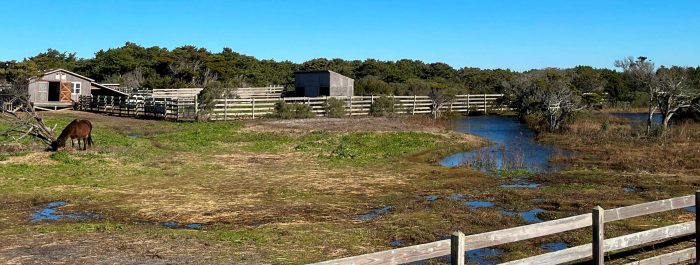


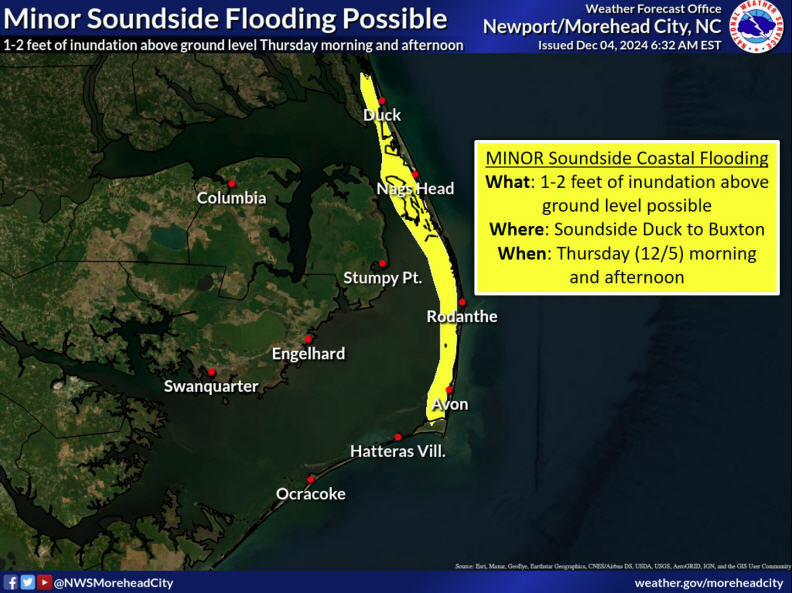
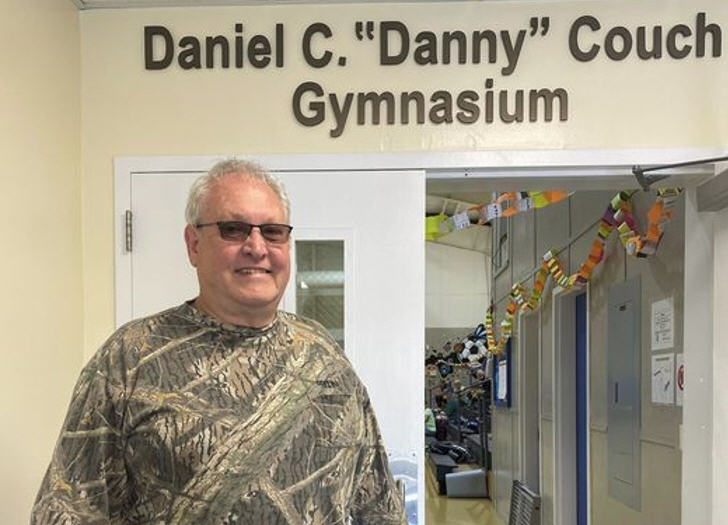
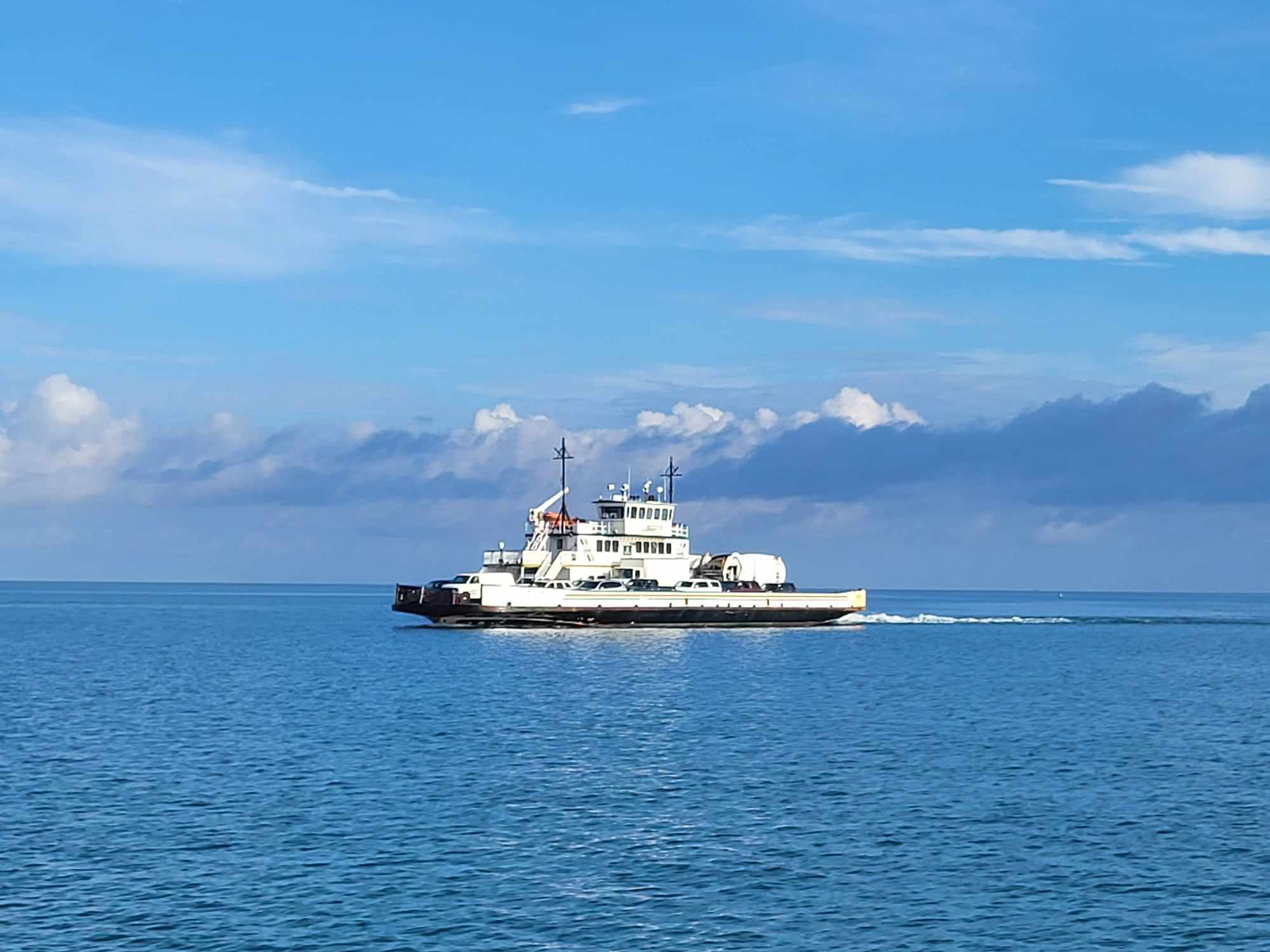
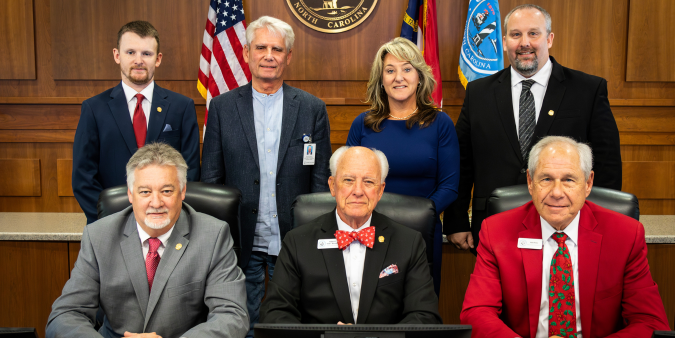
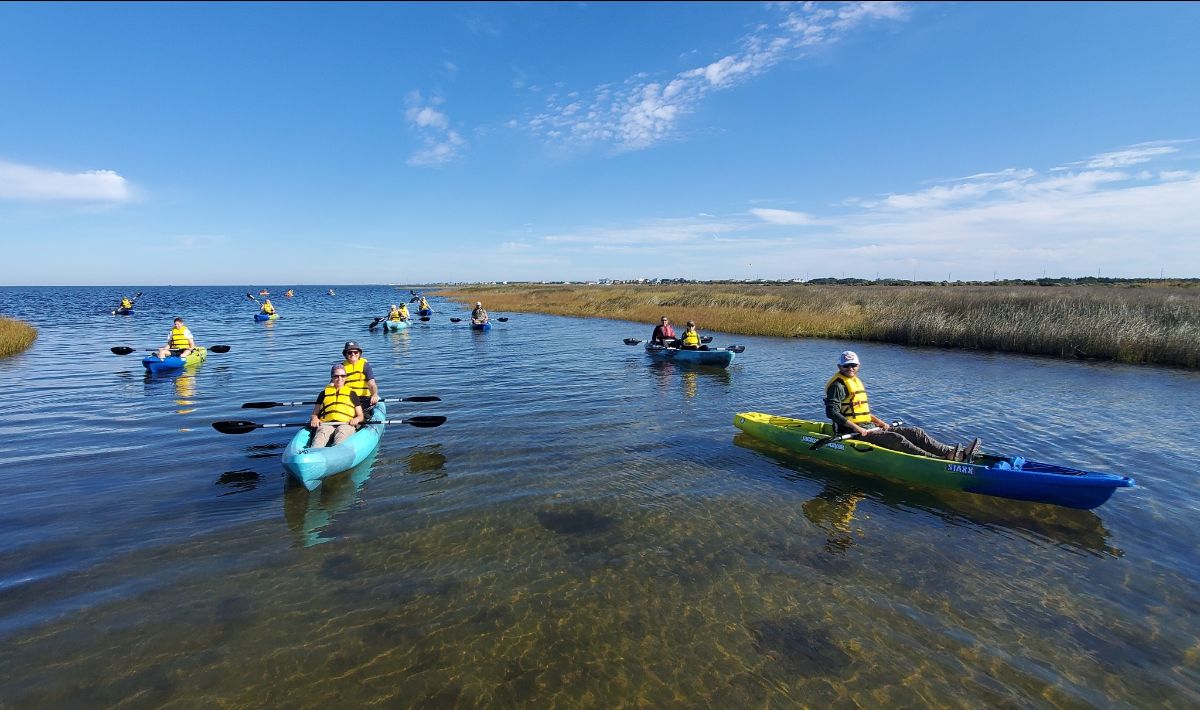
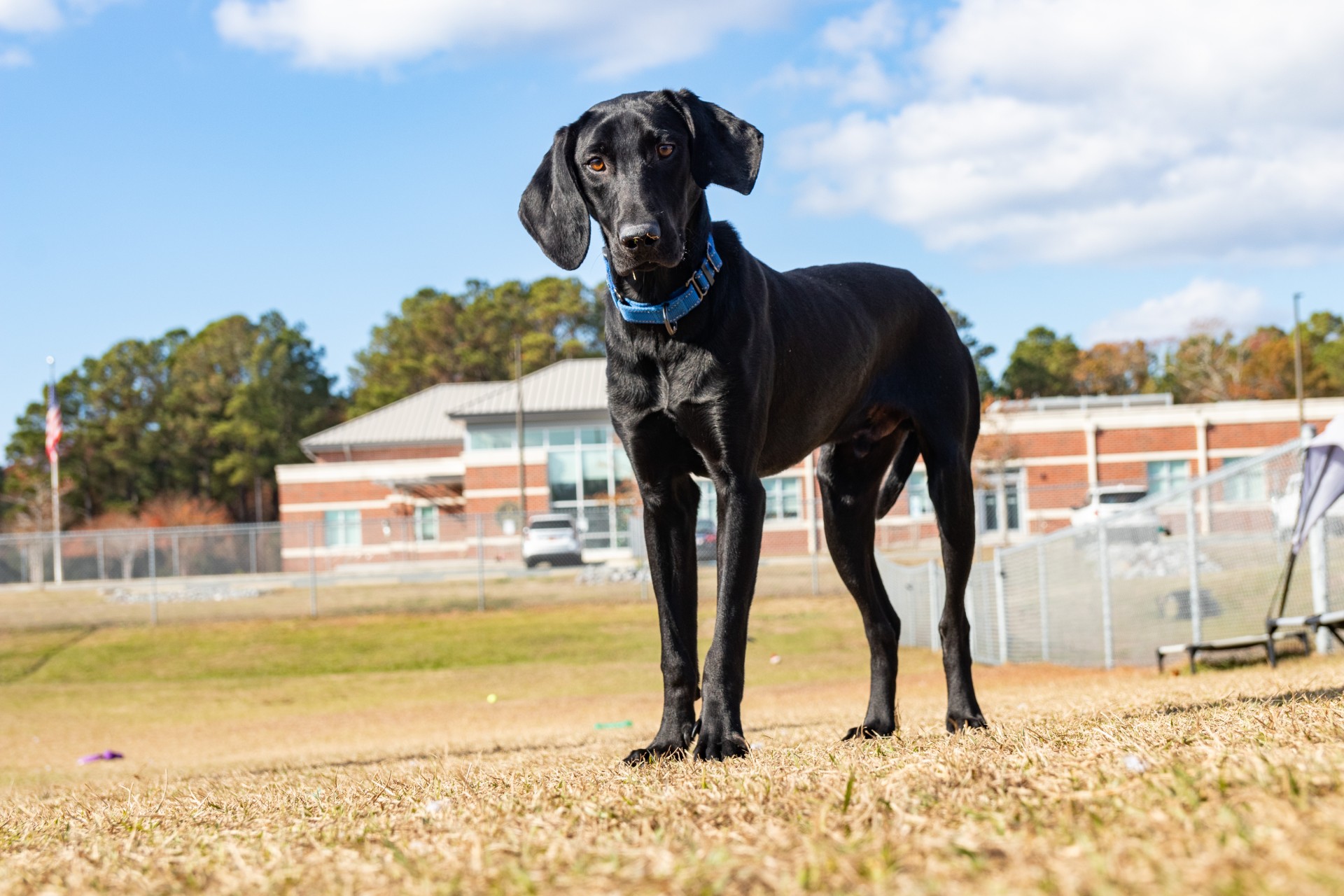
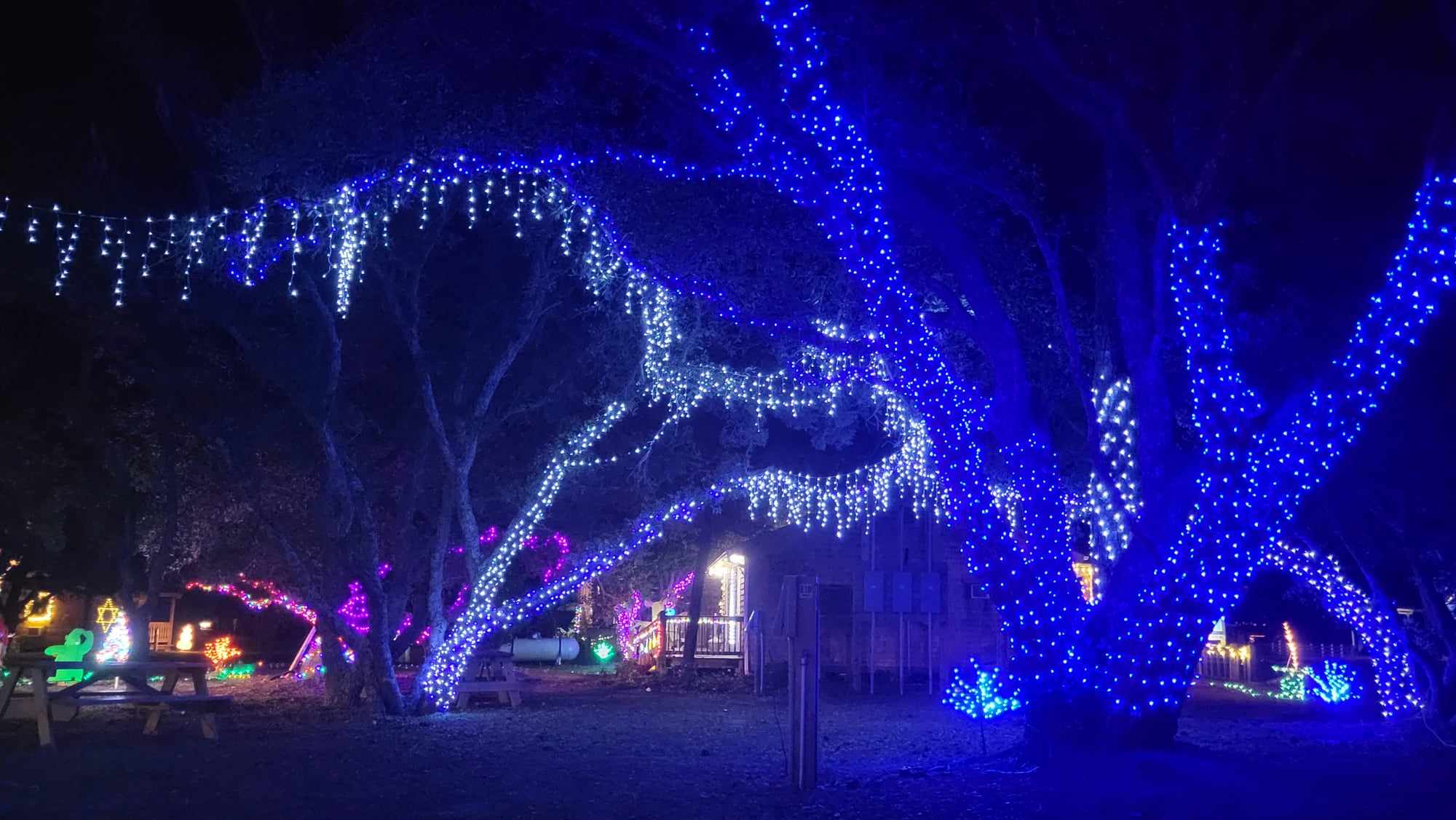
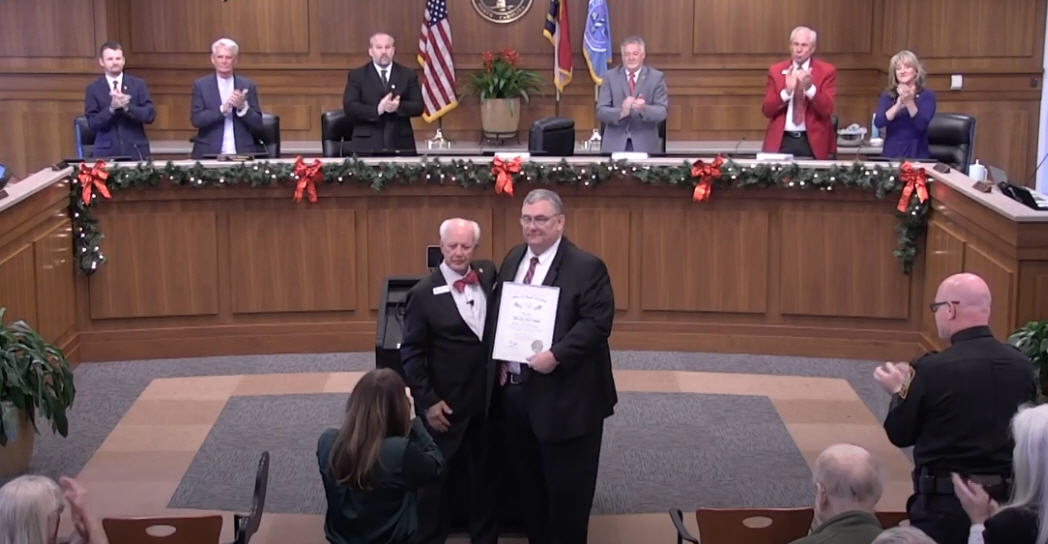






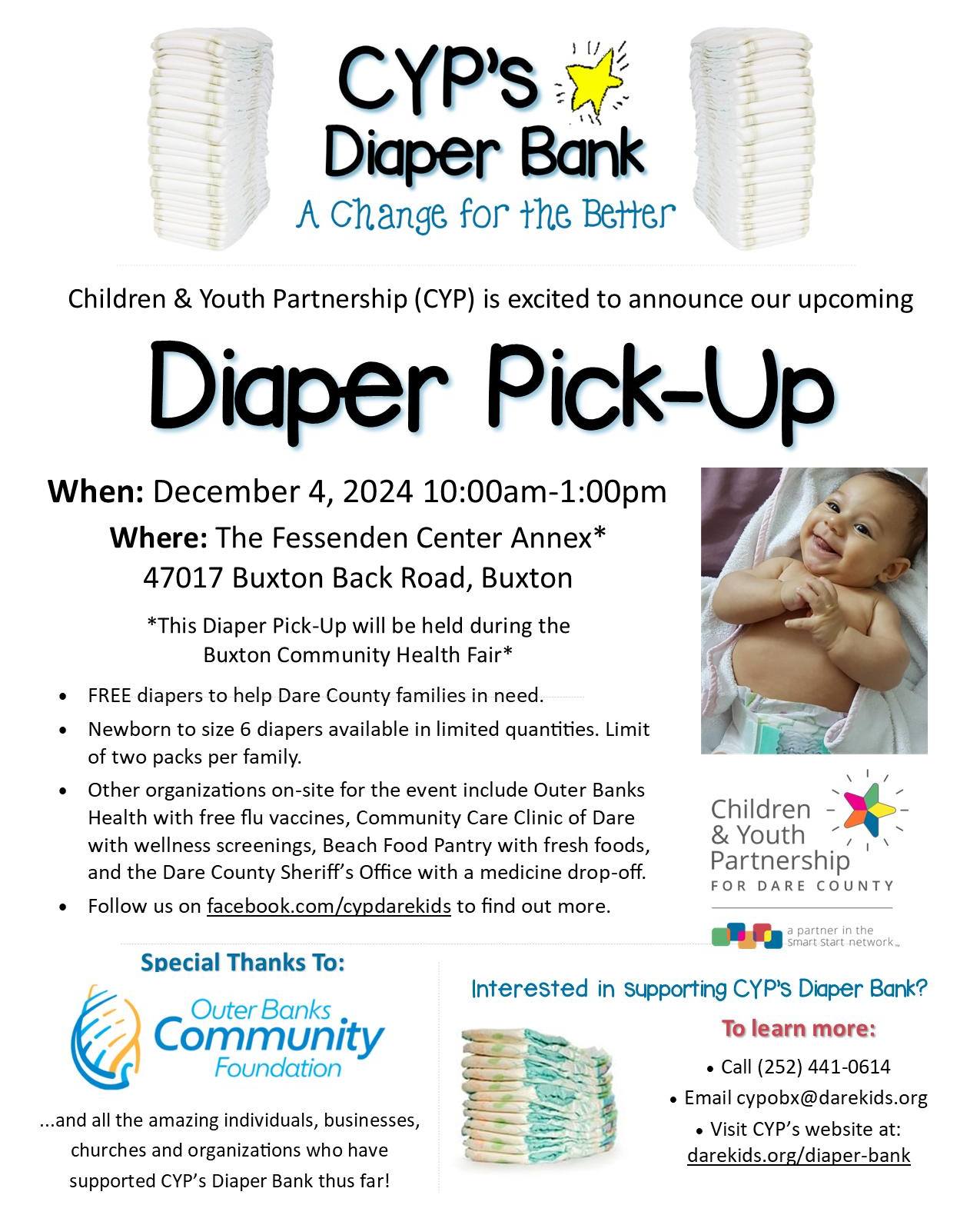

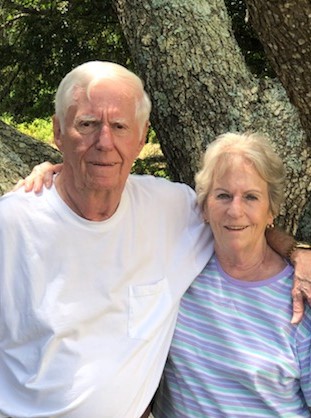


The horse people in Corolla will not like hearing their whole backstory is a fabricated fantasy and they have been bamboozling tourists and harassing the horses who want nothing to do with humans.